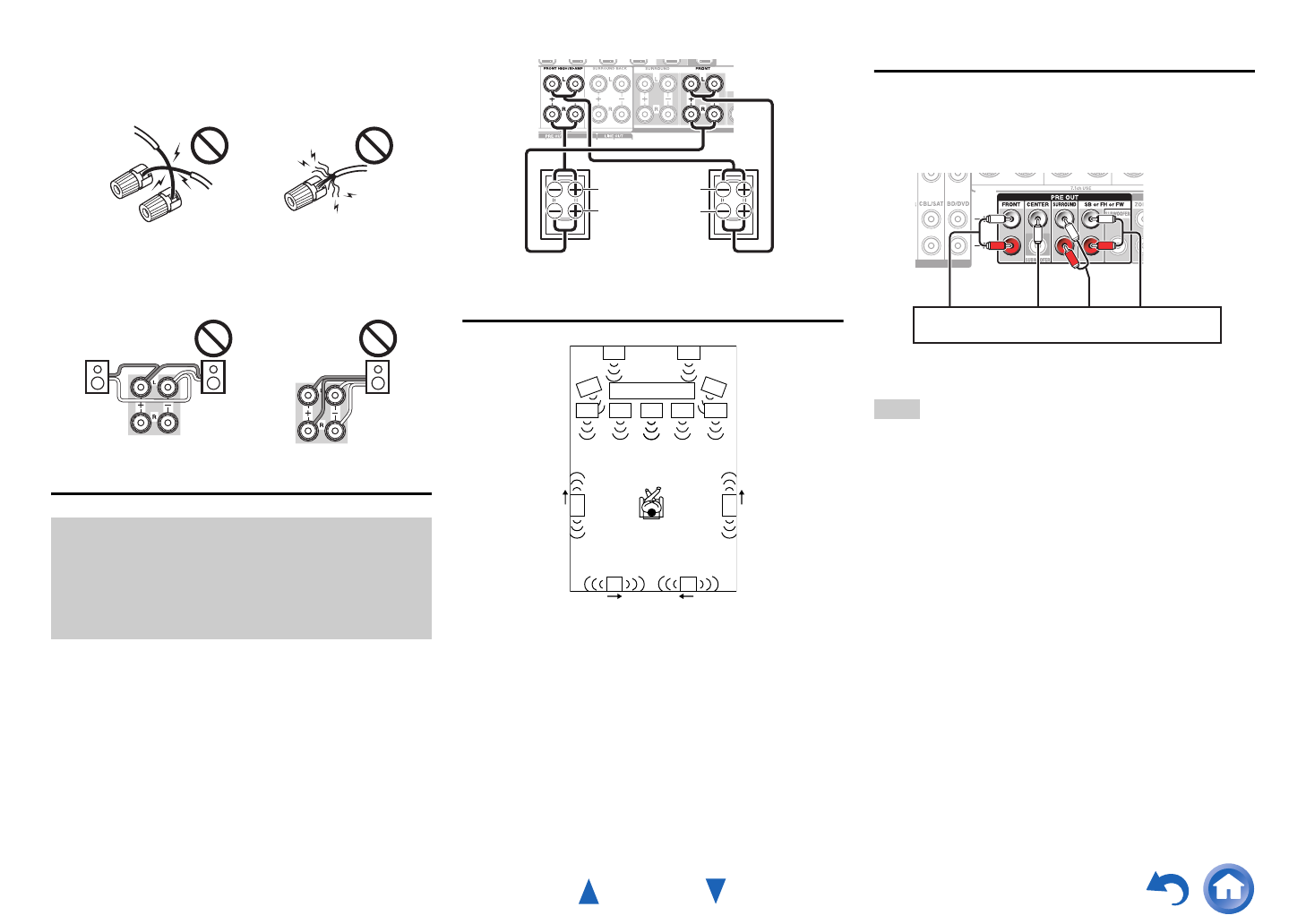
Connections
En-17
• Make sure the metal core of the wire does not have
contact with the AV receiver’s rear panel. Doing so
may damage the AV receiver.
• Don’t connect more than one cable to each speaker
terminal. Doing so may damage the AV receiver.
• Don’t connect one speaker to several terminals.
Bi-amping the Front Speakers
Bi-amping provides improved bass and treble
performance.
When bi-amping is used, the AV receiver is able to
drive up to a 5.1 speaker system in the main room.
Perform bi-amping connections by using FRONT
terminals and FRONT HIGH/Bi-AMP terminals as
shown below.
Once you’ve completed the bi-amping connections
and turned on the AV receiver, you must set the
speaker setting to enable bi-amping (➔ page 64).
Using Dipole Speakers
You can use dipole speakers for the surround and
surround back speakers. Dipole speakers output the
same sound in two directions.
Dipole speakers typically have an arrow printed on
them to indicate how they should be positioned. The
surround dipole speakers (a) should be positioned so
that their arrows point toward the TV/screen, while
the surround back dipole speakers (b) should be
positioned so that their arrows point toward each
other, as shown.
Connecting a Power Amplifier
You can use the AV receiver as a preamp. Connect
all speaker outputs to the power amplifier. See the
manuals supplied with your amplifier for details.
SB···Surround Back, FH···Front High, FW···Front
Wide
Note
• Specify “None” for any channel that you don’t want to
output (➔ page 64).
Important:
• When making the bi-amping connections, be sure to
remove the jumper bars that link the speakers’ tweeter
(high) and woofer (low) terminals.
• Bi-amping can be used only with speakers that support
bi-amping. Refer to your speaker manual.
Front right Front left
Woofer (low)
Tweeter (high)
bb
a a
TV/screen
L
R
Power amplifier


















